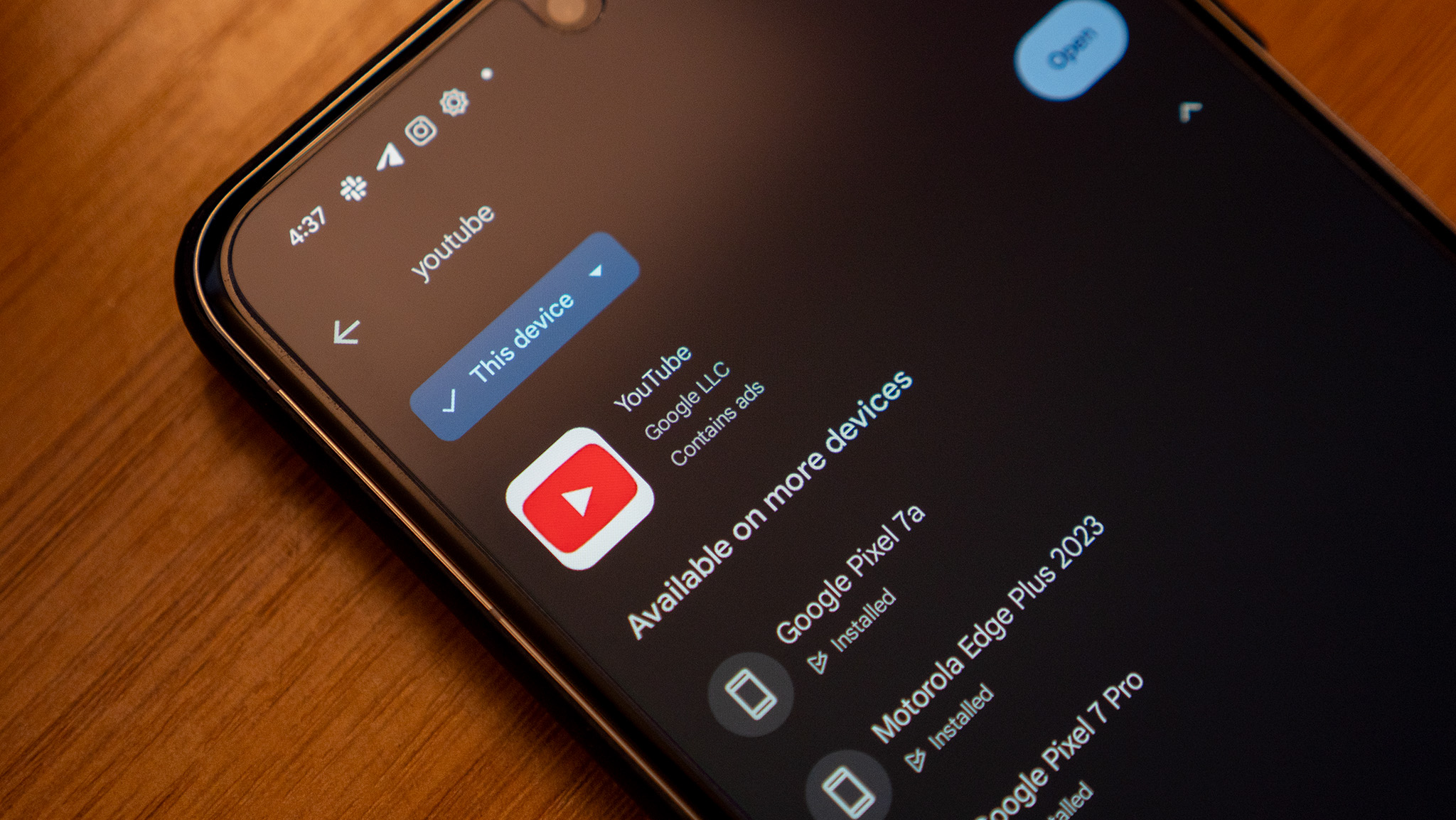Stadia hands-on: Big gaming promises and lots of unanswered questions
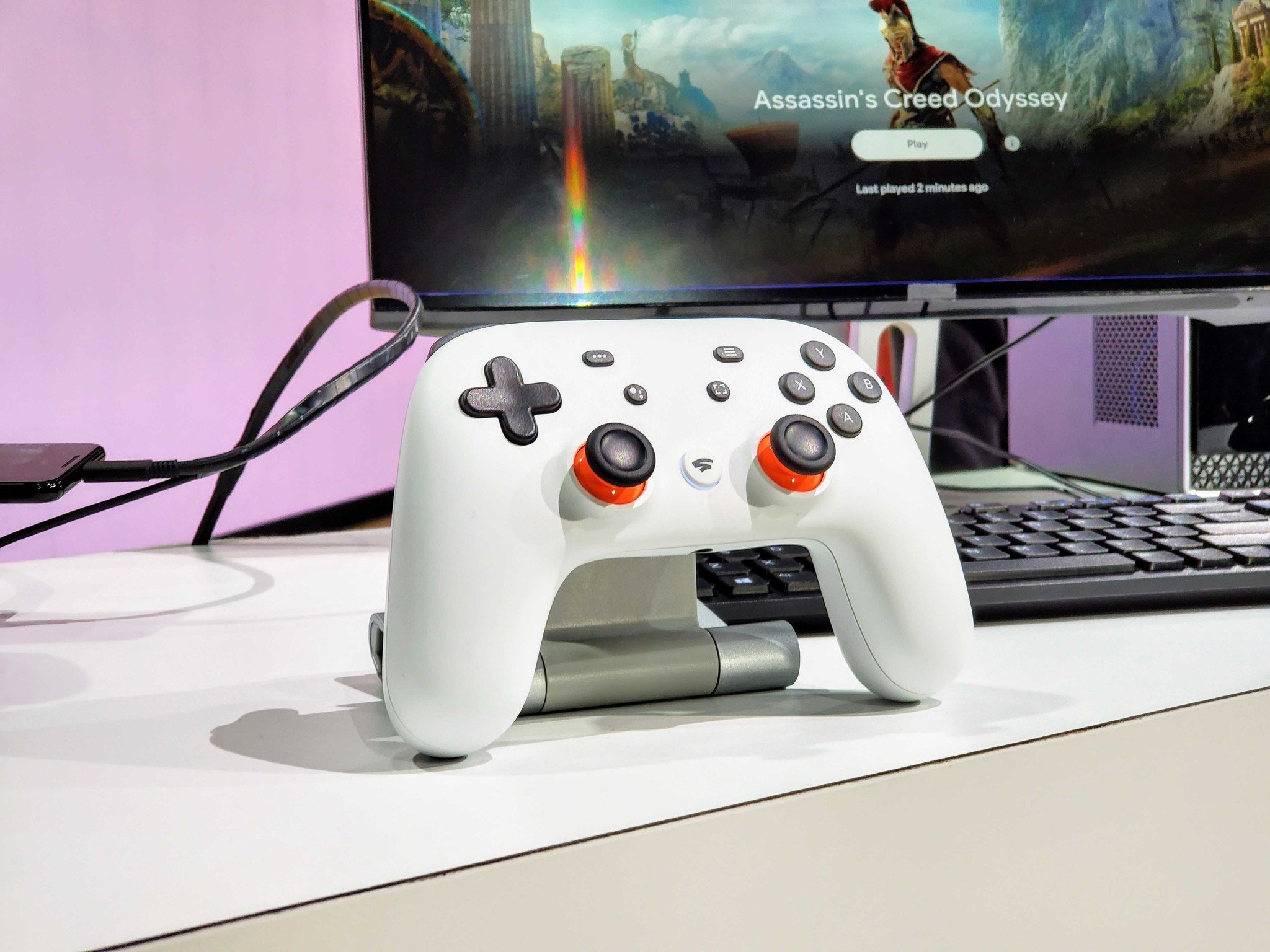
Get the latest news from Android Central, your trusted companion in the world of Android
You are now subscribed
Your newsletter sign-up was successful
Want to know what most of the companies claiming to have the ability to "bring gaming to everyone" have in common? They aren't around anymore, and gaming as an industry remains largely unchanged by the effort. The other thing those companies had in common is a general lack of resources, and very little experience when it came to actually building something for the gaming community at large.
Google, on the other hand, is Google, and it wants to change the way we play games. To do that it has been silently acquiring industry veterans and pulling together its massive cloud-based resources to make its pitch to the world. And as cool as all of that sounds, it's still not entirely clear the company is up to the challenge.
Gaming for all, with the usual caveats
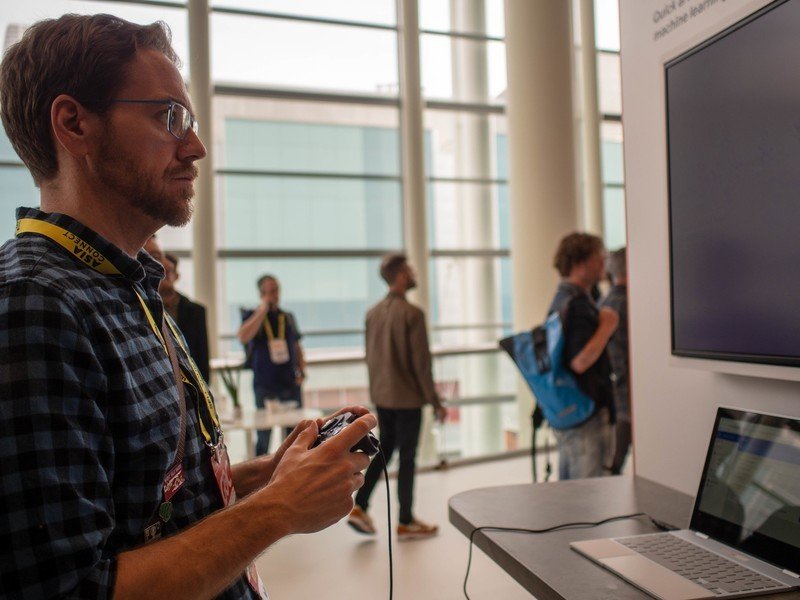
Stadia, which is the plural of "stadium" for those not catching on to Google's clever play on words, is an entirely cloud-based gaming platform. There is no console, no default configuration, and very few minimum system requirements. Your Stadia "console," if you can call it that, lives on a server rack in a Google data center, and offers computing power significantly higher than modern gaming consoles.
With no console in your home or at your desk, there's no install times or loading screens. Stadia is promising the ability to jump into a game five seconds after clicking a browser link. And those links could be anywhere, in a YouTube stream or an email or a text message. You can send a friend a link to join you in a new game you just found, and be playing online with them just about instantly. And if you're watching someone play a game on YouTube Live, you can actually join a lobby to play with that person if they choose to allow it.
But the real feature here is the ability to play anywhere. If you want to play on your phone or tablet, you can. If you want to play on an old laptop, all you need is the Chrome browser. If you'd like to use your television, just pop in a Chromecast Ultra and connect a gamepad via Bluetooth. Which gamepad, you ask? Basically all of them. At GDC 2019, Google set up demos featuring older Logitech gamepads and brand new Raiju Ultimates side by side. Xbox and Sony are included as well; Stadia works with the new Xbox Adaptive Controller for those with accessibility needs.
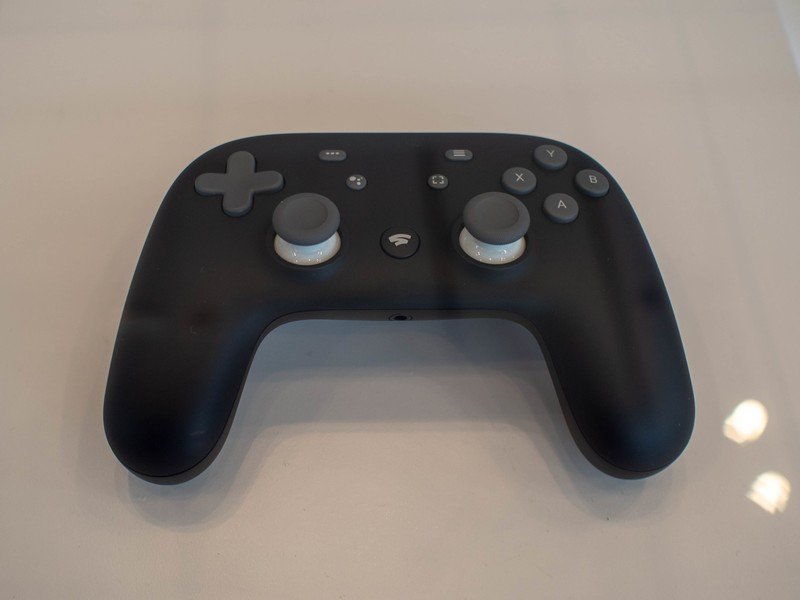
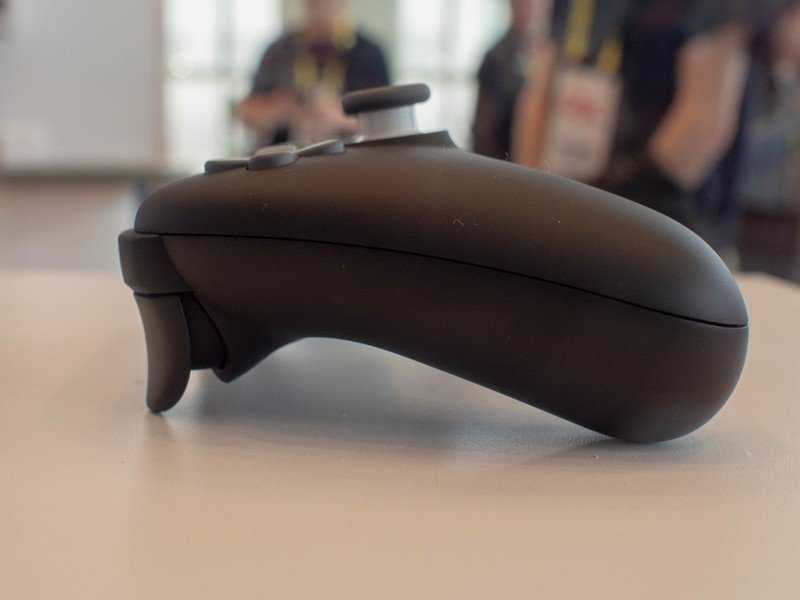
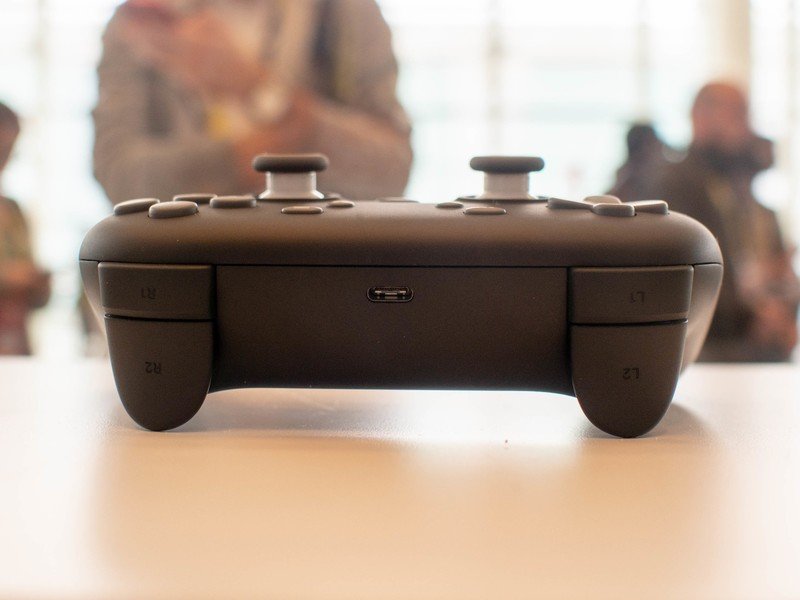
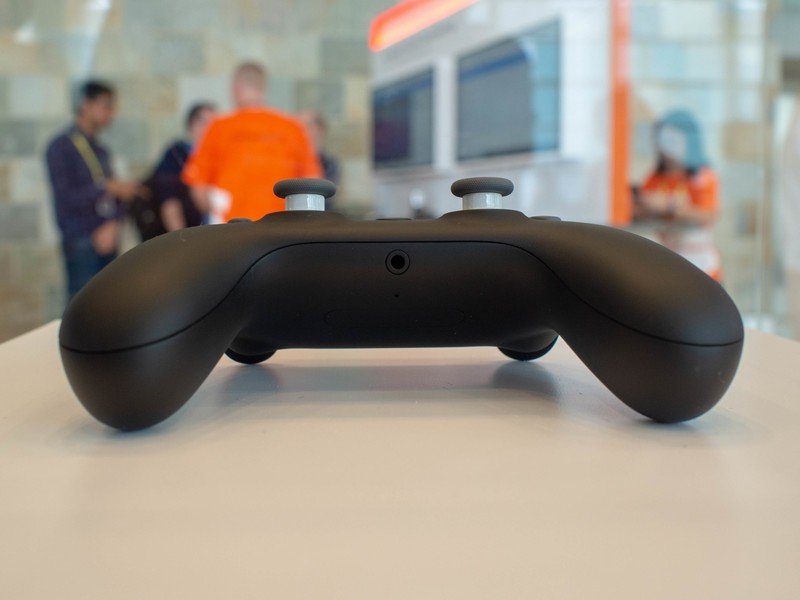
Of course, the "best experience" comes from the official Stadia Controller, which is not yet available to demo. Two of the three colors expected to be available at launch were hidden behind glass cases, and to be honest they look like all of the other modern game controllers available today. Sitting on an end table, this controller would be easily confused for an Xbox One X or Nintendo Switch Pro controller. Which is good, because Microsoft and other companies have put decades of research into designing high-quality controllers and there's no need for Google to remake the wheel here. But since we haven't actually touched one yet, it's hard to say how comfortable it actually is compared to the competition.
This all sounds awesome, but very little of it is available to actually test right now.
The big features you get with this controller are a screen capture button and a Google Assistant button. The capture button is basically standard at this point, since Sony and Nintendo have made capturing video and screenshots on the fly a single-button activity. Everyone wants to be able to share their epic moments, or instantly live stream to friends and fans. As for the Google Assistant button, that's somewhat less clear. Google is hoping developers will lean into supporting this button in their games, but the only demo we saw on stage was someone asking the internet for help with a difficult part of a game when it happened.
Get the latest news from Android Central, your trusted companion in the world of Android
This all sounds awesome, but very little of it is available to actually test right now. Stadia isn't launching until the summer, and the demo stations Google's offering are mostly things we've already seen before. Assassin's Creed Odyssey ran beautifully in the Project Stream demo, and we saw more of that again. Even with access to developers tools, which artificially adjusted the data connection we had, the quality drops didn't feel like deal-breakers. Input lag was less noticeable in ACO compared to Doom, where being able to twitch the controller really matters. There was definitely a little bit of a delay, which made a game I am deeply familiar with feel just slightly off.
So much we don't know
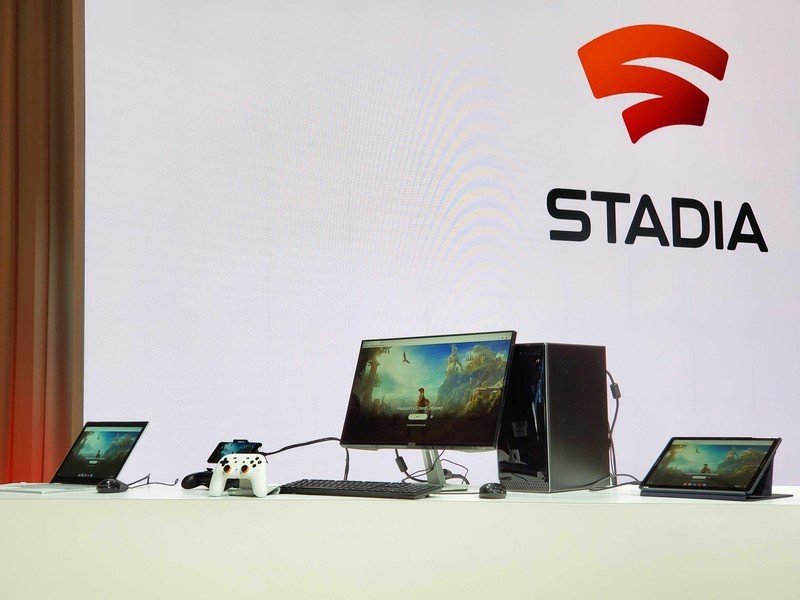
Google's presentation for Stadia was beautiful and bold, but it was also light on details. We have no idea how much any part of Stadia is going to cost, or what the launch lineup is going to look like outside of a few educated guesses. We know Doom Eternal is claiming to support 4K streaming at 60FPS, but it's unclear what kind of internet connection you're going to need to pull that off. With the average internet connection in the U.S. hovering at around 15Mbps, it's important to know whether Stadia will scale down seamlessly. And if all you get is a 720p at 30FPS connection with those lower speeds, is this service going to be worth it?
Whether this is really the future of "gaming for all" is an open question.
What about all of these sharing features? What anti-abuse tools is Stadia going to include at launch for people who allow others to join their games when streaming? Will these tools be integrated in the YouTube Creator interface, or will Stadia be its own system separate from YouTube?
The good news is there's a fair bit of time between now and "summer" for Stadia to answer these questions. But in delaying, the competition is going to be making its own announcements. Microsoft's Project xCloud makes some similar quality claims when compared to the Stadia offering, and the Xbox team needs to work way less hard to court developers to its gaming platform. By the time E3 rolls around, Stadia could have some very serious competition.
Through all of the confusion and anticipation, there's a lot of promise here. Stadia is being presented as a massive leap forward, totally absent the Google brand, and it's run by people who genuinely love games and have been working in this industry for a very long time. It's more than enough to leave me curious to take a deeper dive into this platform, but whether this is really the future of "gaming for all" is an open question.

